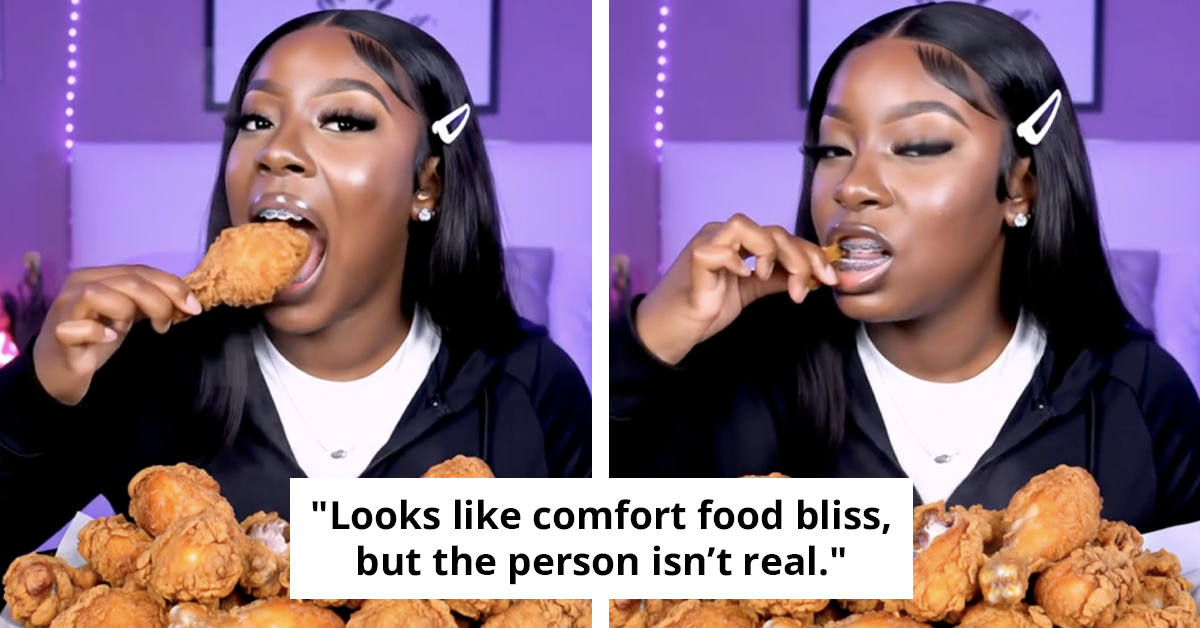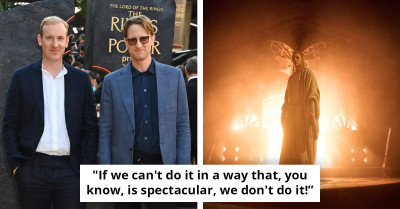
People Recoil At Viral Mukbang After Learning Its Creepy Hidden Truth
Video up over 1.5 million views, and there’s something unusual about this mukbang video that’s catching everyone’s attention.

It’s not unusual for strange or over-the-top videos to blow up on social media, especially in the world of mukbangs. These clips, where people film themselves eating large portions of food while chatting to the camera, have been a staple of the internet for years.
But a recent viral video has taken things in an unexpected, and frankly unsettling, direction. Mukbangs originally came out of South Korea and quickly took over platforms like YouTube and TikTok.
The concept is simple: one person, a mountain of food, and usually a lot of talking. Some lean into the ASMR angle, slurping noodles and crunching fried chicken loud enough to send shivers down your spine, or attract millions of views. It’s weird, but it works.
So, when another mukbang video started gaining traction online, most people probably assumed it was just another creator jumping on the trend. Fried chicken, a friendly face, casual chatter, nothing out of the ordinary at first glance. But then came the twist.
The woman in the video? She’s not real. The entire clip is AI-generated.
That’s right. The person who appears to be happily digging into some greasy comfort food doesn’t exist. No script, no makeup, no camera crew, just a fully artificial human created by an AI.
The video was posted on TikTok by a user named @jazmmmmmmmm, who openly identifies as an AI creator. Since going live, the clip has racked up over 1.5 million views and spilled over onto other platforms like X (formerly Twitter), where people have been going back and forth about it.
Social media users were quick to label the clip as 'spooky.'
Some are just blown away by the tech. One user wrote,
“AI gonna be crazy in a few years - bro, this looks real now.” Another added, “This is fascinating but also a bit unsettling. Really makes you wonder where the line between real and AI content will be in a year from now.”
It’s not just this one video either. Another AI-generated mukbang clip, featuring a different fake woman eating an entire lobster claw, has also surfaced, and yes, people are weirded out.
Some viewers are digging a little deeper into the implications. One person pointed out that these videos might be the result of the countless face filters and AI photo apps that were trending not long ago:
“When everyone was using AI to make AI pics of themselves on those apps … it was really collecting data, features, looks, and etc to do this with it.”
 TikTok
TikTokSome praised the realism, but others criticized the AI for racial stereotyping.
Others are focusing on the technical side. One commenter noted the only giveaway was when the AI woman appeared to eat a chicken bone whole
“AI is getting WAY too good, bruh. The only tell is that she ate the bone,” they said.
But not everyone is just fascinated or amused - some are raising serious concerns, especially around the way the AI avatars are designed. In this case, many have pointed out that the fake woman appears to be modeled after a Black woman, complete with a Southern accent, certain facial features, and cultural mannerisms. And that’s where the mood in the comments shifts.
"AI woman ate a chicken bone."
Users slammed the AI video for mimicking Black stereotypes and called it racially exploitative.
One person tweeted:
“Y’all don’t find it weird that AI can replicate a damn lip combo and a southern BLACCENT and black mannerisms to make a fake Black person??? This s*** not spooky??” Another wrote: “Artificial blackface has bothered me for some time now tbh.”
Then came this:
“Something incredibly sinister behind AI generating a woman to eat racially stereotyped foods and say things to trigger discourse and gender war fighting. Just evil evil evil.”
 X
XThis isn’t just about technology showing off anymore. People are starting to question why these AI avatars look the way they do, how they’re being used, and what messages they might be sending, whether on purpose or not. The boundary between creative innovation and unsettling imitation is fading fast.
What began as a viral mukbang video is now sparking a wider debate about ethics, identity, and where AI-generated content is headed. And it seems this conversation is only getting started.
Damjan







